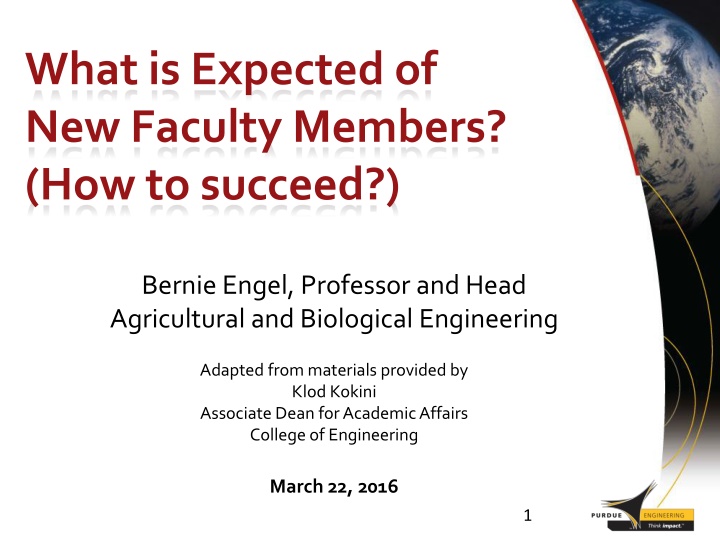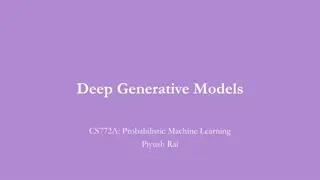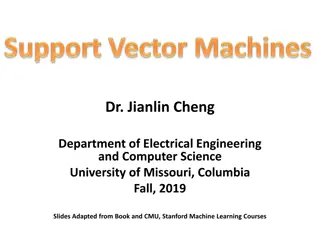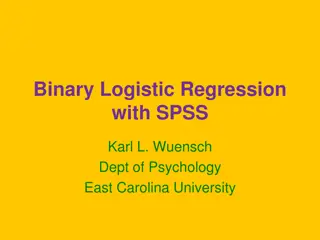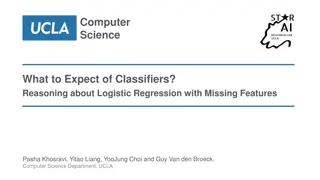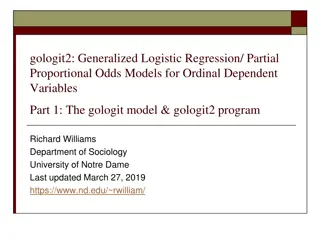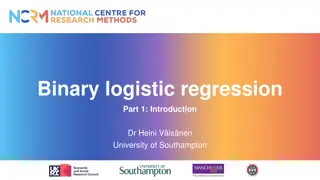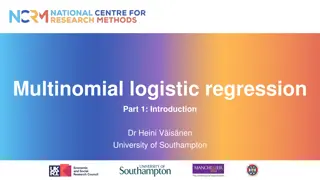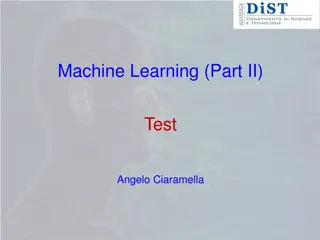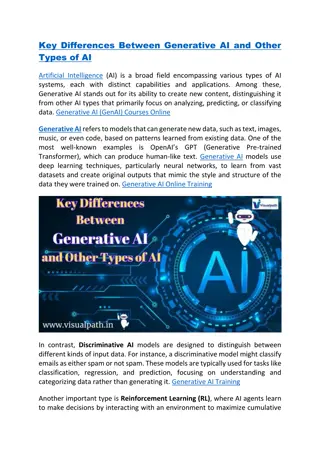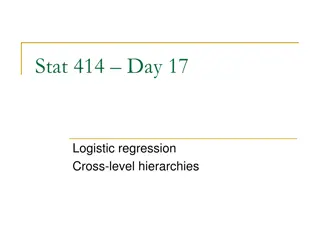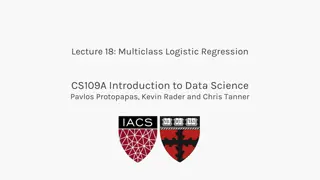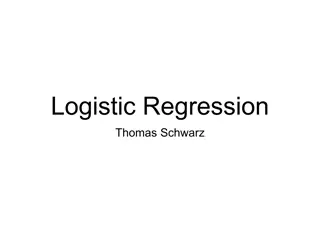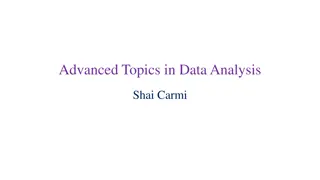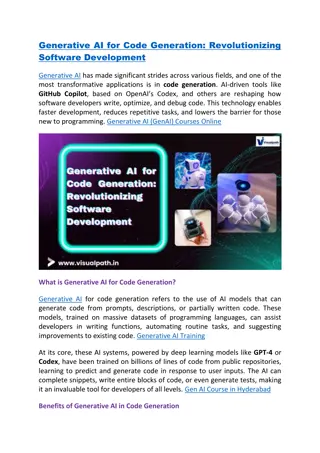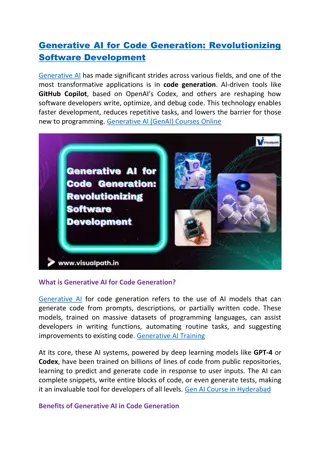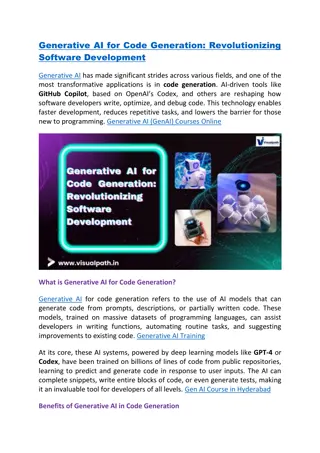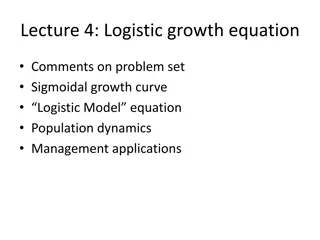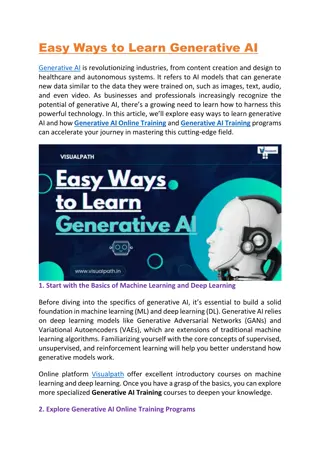Logistic Regression and Generative vs Discriminative Models
Logistic Regression, Generative vs Discriminative Models, Naive Bayes Review, and more topics in machine learning are discussed in the provided content, highlighting the differences between generative and discriminative classifiers, their effectiveness, modeling techniques, and classification boundaries. The content covers various models and approaches in classification and probability calculation in the context of machine learning.
Uploaded on Apr 13, 2025 | 2 Views
Download Presentation

Please find below an Image/Link to download the presentation.
The content on the website is provided AS IS for your information and personal use only. It may not be sold, licensed, or shared on other websites without obtaining consent from the author.If you encounter any issues during the download, it is possible that the publisher has removed the file from their server.
You are allowed to download the files provided on this website for personal or commercial use, subject to the condition that they are used lawfully. All files are the property of their respective owners.
The content on the website is provided AS IS for your information and personal use only. It may not be sold, licensed, or shared on other websites without obtaining consent from the author.
E N D
Presentation Transcript
What is Expected of New Faculty Members? (How to succeed?) Bernie Engel, Professor and Head Agricultural and Biological Engineering Adapted from materials provided by KlodKokini Associate Dean for Academic Affairs College of Engineering March 22, 2016 1
What do faculty do? o Research (discovery) o Teaching (learning) o Engagement and service o Understand expectations in each of these o Understand these expectations within your culture (Department and College)
Research (Discovery) o Quality and impact o Refereed papers High quality journals Refereed conferences o Mentoring graduate students (in particular PhD students) and post docs o Funding to support your research o Presentation at conferences (networking)
Teaching (Learning) o Good teaching at all levels (undergraduate and graduate) is required o Measured by student evaluations o Other measurements options include peer evaluations o Take advantage of teaching/learning workshops and opportunities such as IMPACT o Mentoring undergraduates
Engagement and Service o Extend information/findings to audiences beyond university o Department, college, university committees o Usually these are reduced and/or strategic at the beginning o Professional organizations: very important to connect through review panels, committee work, session organization, ultimately leading to becoming Associate Editor, Conference Chair, etc. o However be selective and strategic in service!
Other Expectations o Collegiality o Entrepreneurial o Problem solver o Responsive o Ask questions
Strategic Plan o Know strategic plan of University, College/School, Department o Identify metrics that relate to you and your goals o Align your activities
Getting a Quick Start o Writing papers and proposals regularly o Spending right amount of time, but not over preparing for teaching o Recruit the right graduate students o Network, socialize with colleagues, internally and externally o Set clear goals and plans write them down
Annual Performance Review o Obtain copy of annual performance review guidelines o Common items Goals Teaching; evidence of teaching/learning effectiveness Scholarly publications Grant success Graduate students and post docs mentored Presentations Awards Engagement Citizenship/collegiality Teamwork
Faculty Orientation Essentials o Annual faculty expectations o Guidelines for promotion and/or tenure o Format for promotion and/or tenure document o Guidelines for evaluation of teaching o Development plan moving toward promotion and/or tenure o Mentoring plan
Understanding P&T o What are the criteria? o How is annual review with head different than promotion and/or tenure review? Frequency Evaluators Third year review
Faculty Career Progress o Assistant Professor..contract review in the 3rd year o Mentoring and feedback are critical starting day one o Nomination to Associate Professor with tenure no later than the beginning of the 6th academic year o No time limit for nomination to Full Professor. .. typically within 5-6 years from promotion to Associate Professor o Named/Distinguished Professor o Administrative or other paths 13
Some Helpful Resources/Policies o Ask about any mentoring practices and policies o Tenure clock extension policy o Family leave policy o Purdue Teaching Academy, Center for Instructional Excellence (CIE) (or other teaching/learning resources) o Child care (including infant care) availability o ADVANCE Programs o Butler Center for Leadership Excellence 14
Resources/Policies (contd) o Ask about any other helpful practices and policies in your college (e.g. Flexible Workload Policy in CoE) o Ask about activities that may help you get involved (e.g. Women s Faculty Committees, Diversity Action Committees), but be strategic o Take advantage of programs for new faculty; University: grant writing workshops, orientation programs, College: new faculty learning communities, Department: business office, graduate office 15
